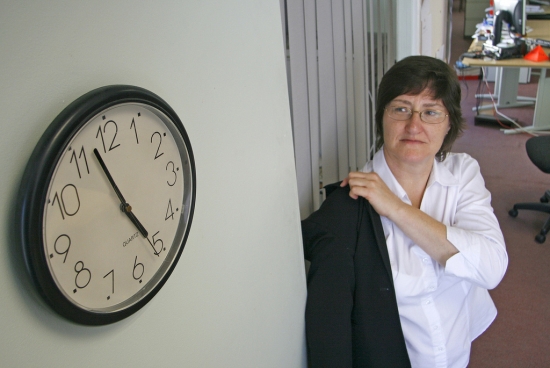The recession brought about many changes in employment patterns. However, one factor which experts now believe cannot be blamed upon the financial crisis is the growing number of British workers choosing to take on a “mini job” rather than committing to full time employment.

Will a structural shift in employment norms lead to a decline in traditional 9 to 5 jobs?
A mini job is defined as a working week lasting between 16 and 30 hours, as opposed to a midi job lasting between 31 and 45 hours per week, or a micro job which involves working 15 hours or less per week.
In the latest Jobs Audit published by consultancy firm Jobs Economist it was found that, although midi jobs remain most popular with 52.1 per cent of workers holding positions of this kind, mini jobs are fast catching up with an employee share of 19.9 per cent.
Yet Jobs Economist believes that, rather than this being a result of businesses cutting hours, it is an intrinsic altering of the employment market as more workers attempt to find a healthy balance between work and leisure time. As a result it predicts that, even though economic recovery will ease the problem of underemployment, the average amount of hours worked per week will still decline further in the future.
Jobs Economist director, John Philpott, argues that this will prove to be a largely popular trend as long as those holding mini jobs are able to earn enough to fund their daily lives.
He continues; “A sustained economic recovery is likely to see a much faster rate of full-time job creation and help reduce underemployment.
“But it would be wrong to assume that this will reverse the long-run trend towards shorter working hours in the UK, which reflects a combination of structural changes in the labour market and changing workplace practices.
“Although the UK continues to be characterised as having an ingrained long hours work culture the reality has been an ongoing structural shift towards a shorter hours work culture which is likely to continue even in better economic times.”
Official employment figures released by the Office for National Statistics certainly indicate that Jobs Economist’s forecasts are beginning to come true. While the number of people in work remains at an all-time high, this is largely due to a boom in the number of part time workers finding employment rather than a significant lift in full time jobs creation, although this too is rising reasonably steadily.
With the UK balanced on the cusp of a structural shift in the labour market, the question is whether this will prove beneficial to employers as well as employees. By introducing initiatives such as flexible working hours, businesses may find that they are better able to attract talented workers wishing to capitalise on the new trend.
Previous Post
Hibernia pays €67m for Ulster Bank Property Portfolio